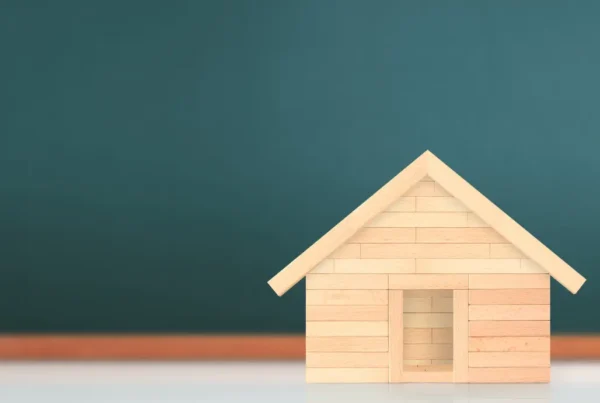Navigating the 2025 Housing Market as a First-Time Buyer
Buying your first home in 2025 can feel challenging – the share of first-time buyers recently fell to a historic low of 24%, and their average age reached 38 (up from 35). High home prices and interest rates mean first-time buyers need to be savvy and well-prepared. The good news is that with the right knowledge and support, you can join the ranks of new homeowners. This ultimate guide breaks down every step, from your initial budgeting to the final closing paperwork, with tips tailored for today’s market conditions.
How to Prepare for Your First Home Purchase
Check your finances and credit: Start by reviewing your credit score and debt-to-income ratio. Lenders typically prefer a credit score of 620 or higher for conventional loans, though FHA loans allow scores as low as 580 with 3.5% down. Pay down high-interest debts and avoid new loans or credit cards before applying for a mortgage. Set a realistic budget by considering not just the mortgage payment, but also property taxes, insurance, utilities, and maintenance.
Save for a down payment: While the old rule of 20% down is not mandatory, plan to save at least 3%–5% of the home price for a down payment (or around 3.5% for FHA loans). Remember to also save for closing costs, which usually add up to about 2%–5% of the loan amount. Many first-time buyers put down about 6%–7% on average. If you have less than 20% down, be prepared for mortgage insurance on conventional loans (until you build enough equity) or ongoing FHA mortgage insurance premiums.
Get pre-approved for a mortgage: A mortgage pre-approval lets you know how much home you can afford and shows sellers you’re a serious buyer. Shop around with multiple lenders or consider using a mortgage broker to compare rates and loan programs (see Mortgage Broker vs. Bank: 7 Key Differences for more insight). Getting pre-approved involves a credit check and providing income documents (W-2s, pay stubs, tax returns). Aim to get pre-approved early, before you start house hunting.
Step-by-Step Home Buying Process for First-Timers
- Find a real estate agent: Work with a knowledgeable buyer’s agent who knows your local market. They can help you find homes in your price range and negotiate on your behalf.
- Start house hunting: Make a list of must-haves (bedrooms, location, etc.) and tour homes online and in person. Be patient – it may take time to find the right home within your budget.
- Make an offer and negotiate: Once you find “the one,” your agent will help you draft a purchase offer. This includes your proposed price, earnest money deposit, and any contingencies (like inspection or financing). The seller may accept, reject, or counter your offer.
- Inspect and appraise: After an offer is accepted, schedule a home inspection to uncover any potential issues. Meanwhile, your lender will order an appraisal to confirm the home’s value. If serious problems arise, you can negotiate repairs or credits with the seller.
- Finalize your mortgage: Submit the purchase agreement to your lender. They will update your loan application and underwriting will verify all details (income, assets, home appraisal). Avoid major financial changes (like changing jobs or buying a car) during this time. Once approved, you’ll receive a Closing Disclosure with final loan terms and costs.
- Close the deal: At closing, you’ll sign the mortgage documents, pay your down payment and closing costs (via a cashier’s check or wire transfer), and complete the transfer of ownership. After signing, you’ll get the keys – you’re officially a homeowner!
Throughout the process, maintain close communication with your lender and agent. If you’re buying in a competitive market (common in cities like Denver or Austin), be ready to act quickly when a good home hits the market.
Mortgage Options for First-Time Home Buyers
First-time buyers have several mortgage options that require low or even no down payment:
- Conventional 97 Loan: A 30-year conventional mortgage allowing just 3% down, typically requiring a 620+ credit score. Mortgage insurance is required until ~20% equity, but it can be removed later.
- FHA Loan: Backed by the Federal Housing Administration, FHA loans require 3.5% down with credit scores 580+. They feature more flexible credit and debt requirements, but include upfront and monthly mortgage insurance.
- VA Loan: For U.S. veterans, active-duty service members, and some military spouses, VA loans offer zero down payment and no ongoing mortgage insurance. Credit requirements are lenient (often around 620), and rates are very competitive. (See our Guide to VA Loans for Veterans for full details on eligibility and benefits.)
- USDA Loan: For buyers in eligible rural and suburban areas, USDA loans allow zero down payment with low mortgage insurance rates. They’re geared toward moderate-income buyers and often require a 640+ credit score.
- State and local programs: Many states (including Texas, Florida, and others) offer first-time buyer programs with down payment assistance or favorable loan terms. For example, Texas has programs like My First Texas Home and down payment grants (see Top First-Time Home Buyer Programs in Texas for a state-specific overview). Check your state housing agency for similar programs.
Each loan type has pros and cons. A good mortgage lender or broker will help you compare options and even combine assistance programs. Always ask about interest rates, fees, and whether the loan has any prepayment penalties or special requirements.
How Much Down Payment Do You Really Need?
Contrary to the 20% myth, first-time buyers can often buy a home with much less:
- 3% to 5% Down: Many buyers put down 3-5%. On a $300,000 home, 5% is $15,000. This keeps more cash in your pocket for moving, emergencies, or renovations.
- Zero Down: If you qualify for a VA or USDA loan, you might not need any down payment at all. Some conventional loans also offer 0% down for certain income-qualified buyers or through special programs.
- Using Gifts or Assistance: It’s common for first-time buyers to use gift funds from family or down payment assistance programs. Lenders generally allow this as long as you provide proper documentation (like a gift letter).
Remember that a smaller down payment means a larger loan and possibly higher monthly payments. Be sure your monthly budget can handle not just the mortgage, but also taxes, insurance, HOA fees (if applicable), and a cushion for maintenance. Use a home affordability calculator to double-check what you can comfortably afford. If you’re unsure, consider talking with F5 Mortgage for a personalized affordability assessment.
First-Time Home Buyer Tips for Success
- Take a homebuyer education course: Many first-time buyer programs (and some lenders) offer free homebuyer classes. These courses teach budgeting, mortgage basics, and home maintenance tips. Plus, you might earn a certificate that fulfills requirements for certain assistance programs.
- Don’t skip the inspection: Even in a hot market, always get a home inspection. Uncovering issues like a bad roof or electrical problems can save you from expensive surprises or give you leverage to negotiate repairs.
- Keep your credit stable: After you’re pre-approved, avoid taking on new debt or missing any payments. Lenders will re-check your credit before closing. Also, hold off on big purchases (furniture, appliances) until after closing – new credit lines or depleting your savings could jeopardize your loan approval.
- Shop for homeowners insurance early: As soon as you have a signed purchase contract, start comparing insurance quotes. You’ll need an insurance binder before closing, and early shopping gives you time to find the best coverage and price.
- Be prepared for closing costs: As noted, closing expenses can add up. We break down typical fees in Closing Costs 101: What You Can Expect to Pay and How to Save. You might negotiate for the seller to cover part of your closing costs, or use a lender credit (slightly higher interest rate in exchange for lower upfront costs) to ease the burden.
Buying your first home is a journey, but you don’t have to go it alone. With careful preparation, professional guidance, and a bit of patience, you’ll soon have a set of keys and a place to call your own.
Lightbulb Tip: Explore first-time buyer programs in your area (many offer grants or deferred second mortgages for down payment help). Every bit of assistance can bring you closer to homeownership.
Frequently Asked Questions (FAQs)
Q: What credit score do I need to buy my first home?
A: It depends on the loan program. Conventional loans typically require ~620 or higher, FHA loans accept 580 and above (with 3.5% down), and VA/USDA loans have flexible guidelines (often around 620). Higher scores can secure better rates, but don’t be discouraged – lenders consider your full financial picture.
Q: Can I buy a house with student loan debt?
A: Yes, many first-time buyers have student loans. Lenders will look at your debt-to-income (DTI) ratio – basically your monthly debt payments (including an estimated mortgage) compared to your income. If your student loans are in good standing and your DTI is within allowable ranges (often under ~45%), you can still qualify. You might need to provide additional documentation if you’re on an income-based repayment plan. An experienced lender like F5 Mortgage can help navigate these scenarios.
Q: Should I rent or buy in 2025?
A: If you’re financially prepared and plan to stay put for a few years, buying can build your wealth through equity and potential home appreciation. With rents rising in many areas, a stable mortgage payment might be more affordable in the long run. However, if you need flexibility, have very little savings, or the market is overheated in your city, renting short-term could be wiser. Our team at F5 Mortgage can help you run the numbers based on home prices and rent costs in Colorado, Texas, Florida, and other markets to inform your decision.
Q: How do I find first-time home buyer programs or grants?
A: Start with your state’s Housing Finance Agency website – they list programs for first-time buyers. For instance, Texas offers down payment assistance and mortgage credit certificates. Also check city and county programs (especially if you’re buying in major cities). Lenders that specialize in first-time buyers (like F5 Mortgage) can also point you toward available programs in your area and help you apply when you get your mortgage.
Q: What if I can’t afford a 20% down payment?
A: Most first-time buyers put down less than 20%. As long as you can afford the monthly payments (including any mortgage insurance), it’s perfectly fine to buy with 3-5% down or use a zero-down loan. Homeownership might be closer than you think – especially with today’s loan programs designed for new buyers.
Ready to take the leap to homeownership? Contact F5 Mortgage to get personalized guidance and explore loan options for first-time home buyers.








